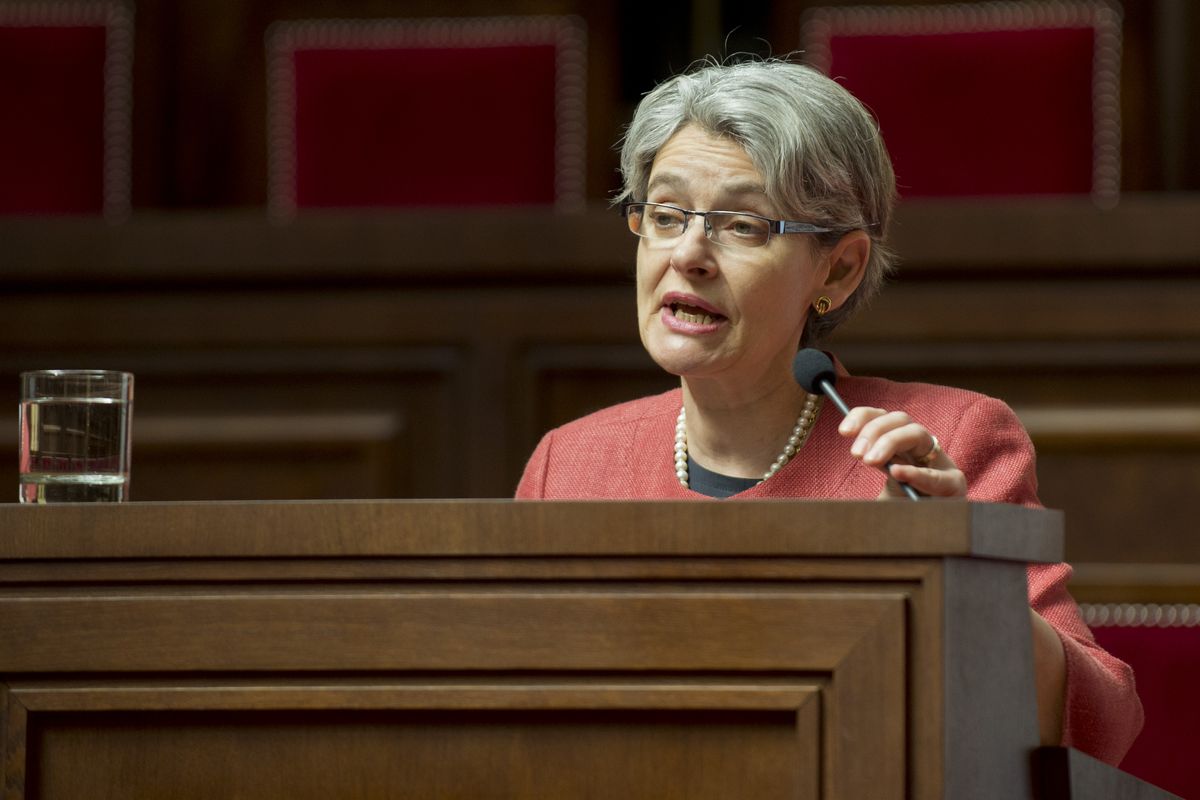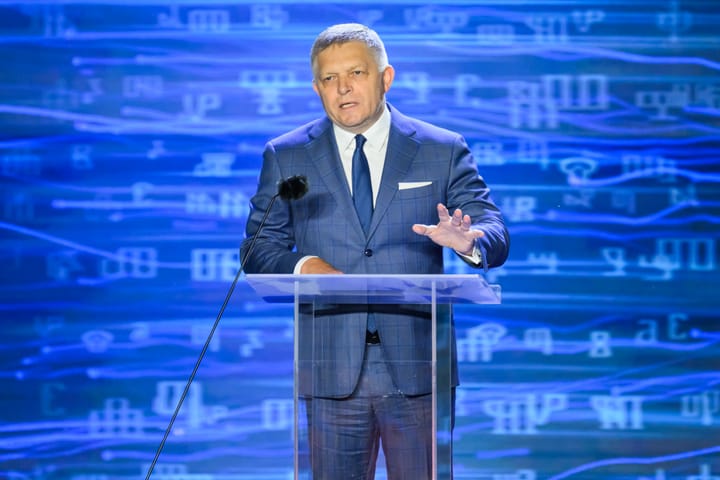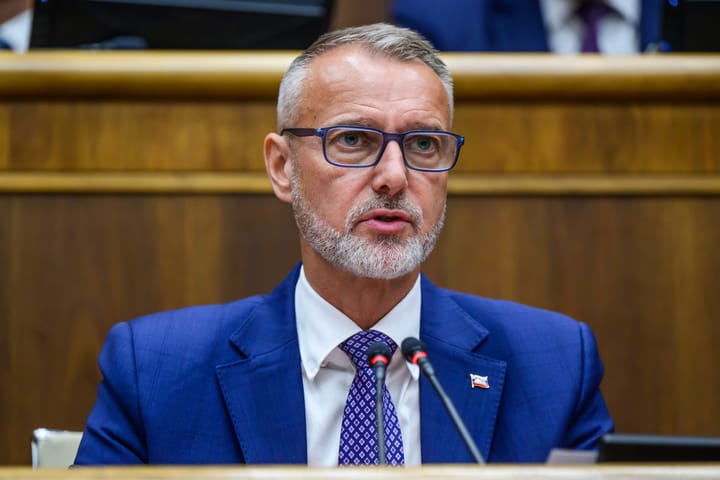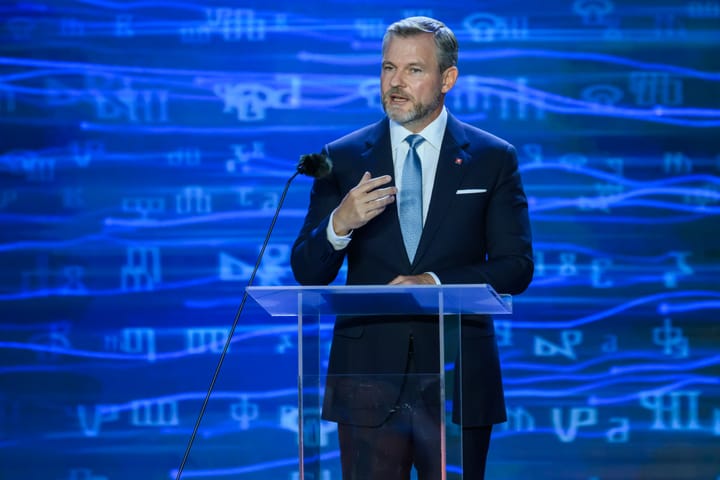Bokova: Young Generation Can Put End to Poverty and Climate Change

Bratislava, May 6 (TASR) – UNESCO Director-General Irina Bokova in her lecture at Comenius University in Bratislava on Friday said that today’s young people are the first generation that can put an end to extreme poverty and the last that can resolve climate change.
“The future is in this room,” said Bokova to an audience full of students. In her lecture ‘Empowering Youth, Promoting Diversity – New Foundations for Resilience and Peace’ she described the young generation as the most travelled, the most educated and the most open-minded as well as one that carries the heaviest burden of transformation. One of UNESCO’s tasks is to strengthen the status of youth, and education is the strongest force.
Bokova stressed that around 1.5 billion people currently live in conflict-stricken areas, of which 40 percent are young people. There are also as many as 73 million youngsters that are unemployed.
The UNESCO chief stated that the employment of values such as solidarity, dialogue, human rights and dignity are needed. Persisting conflicts are tearing society apart, while extremism and terrorism are on the rise. We’re witnessing the destruction of cultural heritage as well as a new global fight for the hearts and minds of mostly young people. Wars are incited in people’s minds, and that’s where the defence should start. For instance, around 60,000 people support Islamic state on Twitter.
“It’s easy to work with people of similar thinking, but we have to work with those who reject our thoughts. We need to involve them in transformation,” she stated. “My key message today is that all societies have strong foundations on which we can build,” added Bokova. Intelligence and talent can be found everywhere and can benefit everyone. When our planet and resources are being depleted, we can tap into the renewable energy of the human mind, she said.
Gender equality means doubling our creative forces, but there’s gender equality in terms of primary education only in 60 percent of all countries, while in terms of secondary education the figure is only 38 percent. Inequality means that girls have only half as many opportunities in education. The most disadvantaged are girls from sub-Saharan Africa.
Bokova said that culture is a primeval renewable energy. People don’t have to import it, nor do they have to start building it from scratch. “Culture is who we are; it’s everywhere around us. We just need to open our eyes,” said Bokova.
Comenius University rector Karol Micieta presented Bokova with the university’s commemorative medal for support of education. It should also serve as a memento of the day, of Bratislava and of Slovakia.
Born on July 12, 1952 in Sofia, Bulgaria, Bokova became UNESCO’s tenth director-general on November 15, 2009, making her the first woman and the first Eastern European to head the agency. At UNESCO she advocates UNESCO reform, gender equality, improved education for all and the prevention of funding for terrorism. She also fights against the radicalisation of youth and puts an accent on developing science in sustainable development, water resources management, security for journalists and freedom of speech.
In February, Bokova was named as Bulgaria’s official candidate for the post of UN secretary-general.



